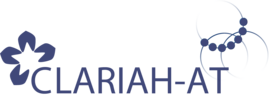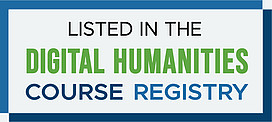Lecturers
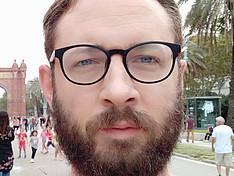
George Bruseker
Centre for Cultural Informatics (ICS-FORTH)
Modelling cultural heritage data
Dr. George Bruseker is coordinator of the Centre for Cultural Informatics (a part of ICS-FORTH) which conducts research in digital humanities with a particular focus on conceptual modelling and the use of semantic techniques for advanced data integration and research. His formation is in philosophy having earned his PhD in Philosophy from the National and Kapodistrian University of Athens (Greece) in ancient Greek philosophy, his MA from the Katholieke Universiteit Leuven (Belgium) and his BA from the University of Alberta (Canada). He has worked in the field of information management for cultural heritage for over a decade, having worked as IT Officer for the British School at Athens (Greece) and Qatar Museums organizing large-scale collections’ information management projects. In 2015, he took up a position as Experienced Researcher in the Marie Curie ITN-Digital Cultural Heritage Project working on the question of establishing provenance documentation for 3D models. At present he works in the Parthenos project, a European cluster project, looking at best practices for research infrastructures. He is co-chair of the Data for History Consortium and participates in various semantic working groups including the CIDOC CRM Special Interest Group, the Arches Resource Modelling Working Group and the Linked Art consortium. His research interests are in the development of methodologies and tools for enabling sustainable semantic data lifecycles for research, methodology of conceptual modelling and formal ontology construction and maintenance, pedagogical techniques for semantic data and the modelling of historical and architectural data.
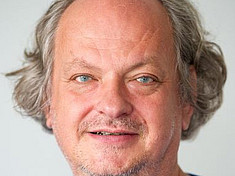
Thierry Declerck
DFKI GmbH
Linked Data in Linguistics
Thierry Declerck is a Senior Consultant at the German Research Center for Artificial Intelligence (DFKI GmbH) since 1996, working in the field of multilingual language technologies. Thierry has acquired a larger number of projects in various fields, like multimedia semantics, information extraction, sentiment analysis (being the overall coordinator of the past European project "TrendMiner"), multilingual knowledge systems, etc. He is now responsible for the DFKI contribution to the recently started "Prêt-à-LLOD" project on "Ready-to-use Multilingual Linked Language Data for Knowledge Services across Sectors" (http://www.pret-a-llod.eu/). Thierry also contributes for the Austrian Center for Digital Humanities to the ELEXIS project (https://elex.is/), especially investigating the role of Linked Data for the representation and generation of lexical data.
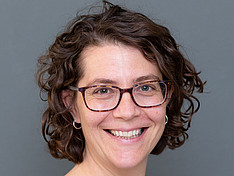
Rebecca Kahn
Alexander von Humboldt Institute for Internet and Society
Working with Recogito, GLAM and LOD
Rebecca Kahn is a researcher at the Alexander von Humboldt Institute for Internet and Society in Berlin, and the Director of Collections at Pelagios. She completed her PhD in Digital Humanities at Kings College London in 2017, and specialises in researching how digitisation changes the ways in which archives and museums approach and manage their collections. She is one of the coordinators of the DARIAH GeoHumanities working group, and is currently working on a project which combines Wikidata, ancient world gazetteers and Asterix comics.

John McCrae
National University of Ireland Galway
Linked Data in Linguistics
Dr. John P. McCrae is a Lecturer Above-the-Bar at the National University of Ireland Galway, whose work has focused on the intersection of NLP and data science, and has lead the development of the linguistic linked open data cloud, a large-scale integration of many language resources. He received his PhD for the National Institute of Informatics in Tokyo, Japan and worked as a post-doc under Prof. Dr. Philipp Cimiano until 2015, working on the Monnet, PortDial and Lider projects. He is currently the coordinator of the Prêt-à-LLOD project on making linguistic linked open data ready-to-use. as well as a work package leader in the ELEXIS project on a European Lexicographic Infrastructure.

Christopher Pollin
University of Graz
Web of Data Stack - Identifying standards and technologies
Holds a Bachelor degree in History and a Joint Master’s Degree in Digital Heritage (EuroMACHS). Currently he is a PhD candidate in Digital Humanities. Since 2016 he has been a research assistant at the Centre for Information Modelling (ZIM) at the University of Graz. His work in technical development and data modelling includes the following projects: STEFAN ZWEIG DIGITAL, in cooperation with the Literature Archive Salzburg; ‘Open Access Database Adjective-Adverb Interfaces in Romance’, in cooperation with the Institute for Romance Studies of the University of Graz; and ‘Digital Edition Publishing Cooperative for Historical Accounts’ with partners in the USA. The main focus of his work is on semantic web technologies, information retrieval, and web programming. In addition to teaching in these fields, his dissertation project focuses on information-based retrieval and discovery for research data in the humanities.

Rainer Simon
AIT Austrian Institute of Technology
Working with Recogito, GLAM and LOD
Rainer Simon is a Senior Scientist at the Digital Insight Lab at the AIT Austrian Institute of Technology. He has been working in the field of multimedia information management and retrieval for more than 15 years, with a particular focus on technologies and user interfaces that process and visualize geospatial information. Presently, Rainer serves as the Technical Director for Pelagios, and is also the technical lead for the open source project Recogito, an online annotation environment for texts and images.
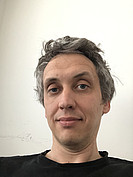
Matthias Schlögl
Austrian Academy of Sciences
Querying the web of data
Is a researcher at the Austrian Centre for Digital Humanities (ACDH) and a PhD candidate at the University of Bath (UK). For the past 10 years he has worked on the digital parts of SSH projects at the University of Bath, the Social Science Research Centre Berlin, the University of Aarhus and the ACDH. His research focuses on the modelling, enrichment and analysis of prosopographical data. For this end he has together with colleagues published several software components and libraries. At the ACDH he is currently working on the Austrian Prosopographical Information System (APIS), the History of the Austrian Academy of Sciences (PAAS), a project that provides historical shapefiles (HistoGIS) and a webservice for NLP tasks (spacyapps).

Gerlinde Schneider
University of Graz
Web of Data Stack - Identifying standards and technologies
Is a technical coordinator and software developer at the Centre for Information Modelling at the University of Graz. Since 2012, she has been involved in various research projects in the field of language technologies as well as digital scholarly editions. Currently, she is coordinating the establishment of a CLARIN Centre at the University of Graz as well as the realization of the project “Open Access Database "Adjective-Adverb Interfaces in Romance” funded within the Open Research Data Pilot program by the Austrian Science Fund. Within this project, she is investigating ways of producing FAIR linguistic research data, also by the use of semantic technologies and linked open data. In practice, she specializes in web engineering with a focus on client-side web applications and data curation. Her research interests lie in the areas of linked data and interoperability as well as the implications of software use in humanities research.

Christian Steiner
University of Graz
Linked Data Curation using Open Refine
Education: Master in "Translation" English, Bosnian/Croatian/Serbian, Joint-Master EuroMACHS (Digital Humanities) at the Centre for Information Modelling Graz.
Christian Steiner is a research assistant in the projects "Cantus Network" and "CoReMa - Cooking Recipes of the Middle Ages" at ZIM Graz and responsible for the implementation of the digital and print editions of the liturgical-musical sources from the metropolitan province Salzburg and the medieval recipes. He is particularly concerned with methods of semantic modelling and possibilities for the application of Semantic Web technologies.
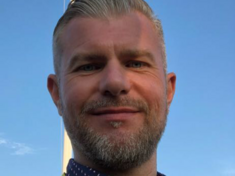
Ivan Varzinczak
Univsité d'Artois
Formal Foundations of Ontologies and Reasoning
Ivan Varzinczak is an associate professor at Université d'Artois, France. He holds a Ph.D. (2006) in artificial intelligence from Université Paul Sabatier, France. Before joining Université d'Artois, Ivan was a postdoctoral researcher at the CSIR Meraka Institute in South Africa and a professor of logic and theoretical computer science at the Federal University of Rio de Janeiro, Brazil. Ivan's main research interest area is logic-based knowledge representation and reasoning in artificial intelligence, with focus on modal and description logics and their applications in non-monotonic reasoning, reasoning about actions and change, and the semantic web. He has co-authored more than 50 peer-reviewed publications which altogether have received more than 700 citations, according to Google Scholar (http://tinyurl.com/varzinczak). Ivan has taught several courses and tutorials at international conferences and schools. The most recent one was a week-long course on description logics at the European Summer School on Logic, Language and Information (ESSLLI), in 2018. For more information: http://ijv.ovh
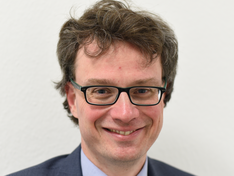
Georg Vogeler
University of Graz
Opening lecture, Knowledge Representation and Ontologies
Georg Vogeler studied Historical Auxiliary Sciences in Freiburg (Brsg.) and Munich.. His research interests are in the field of late medieval administrative records, diplomatics of the charters of Frederic second, digital diplomatics, digital edition and application of sementic web technologies to humanities research questions. In these fields he received several international grants. He studied and worked in Munich and Italy. Since 2011 he employed at Graz University at the Zentrum für Informationsmodellierung – Austrian Centre for Digital Humanities, and since 2016 full professor for Digital Humanities. Georg Vogeler is founding member of the Institut für Dokumentologie und Editor
(http://www.i-d-e.de), technical director the monasterium-consortium (http://www.monasterium.net) and member of the board of directors of the Austrian Centre for Digital Humanities at the Austrian Academy of Sciences.
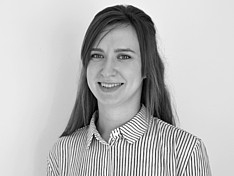
Ksenia Zaytseva
Austrian Academy of Sciences
Controlled Vocabularies and SKOS
Ksenia Zaytseva is a data analyst at the Austrian Centre for Digital Humanities (ACDH).
She graduated from the international Master’s programme in library and information science ‘Digital Library Learning’ (DILL) with a thesis on the development of semantic annotation in the digital humanities. Ksenia coordinates work on Reference Resources and Controlled Vocabularies with the main focus to further develop and maintain the ACDH Vocabularies platform which provides services for vocabularies management such as repository, editor, SPARQL endpoint and visualization. She is also involved in the development of data driven applications for digital humanities projects in archaeological and linguistic domains. She contributes to the DjangoBaseProject, an open source software that provides generic functionalities and solutions for building web applications in DH projects. Her research interests are Semantic Web technologies and Linked (Open) Data, methods and technologies in knowledge engineering and machine learning for data analysis.


